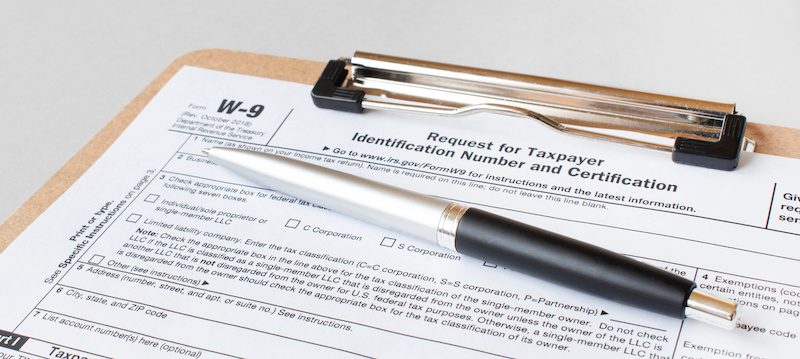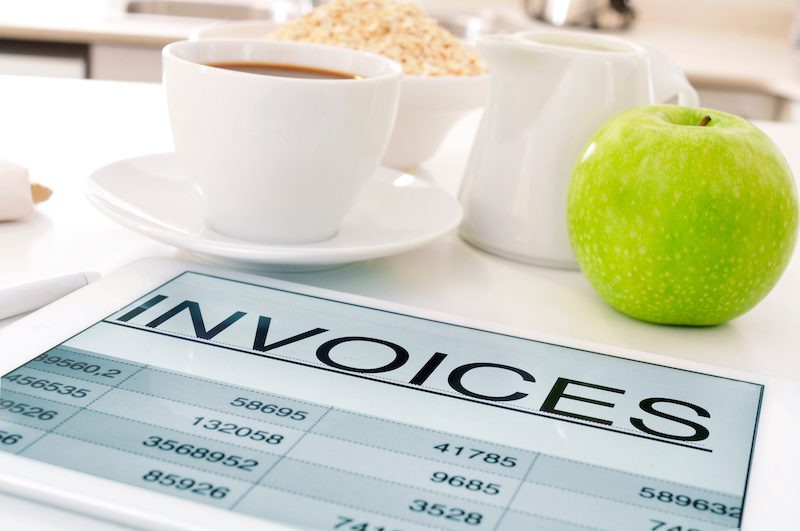There are a lot of great things about leaving behind the grind of full-time employment to go into business for yourself. Doing taxes isn’t one of them.
Tax law, especially in the U.S., is a moving target that’s way more complicated than it ought to be. If you’re not a numbers person, it might be tempting to hand everything over to a professional and never look back. But you can also learn a lot about your business and taxes by handling things yourself — or at least trying to.
The first rule of freelance taxes is simple: PAY THEM. The IRS is “kinda gangster,” says Ilene Squires, an accounting consultant in Los Angeles who helps creative entrepreneurs figure out their taxes. “If they want your money, they’re going to find you. Don’t evade them.”
Even if your style is more DIY than CPA, it’s important to know the basics. For that, we asked three accounting pros to share their tips for what new freelancers should know about how to stay on Uncle Sam’s good side.
It’s All About the Quarterlies
One of the biggest adjustments for workers moving from full-time employment to self-employment is something called quarterly estimated taxes: You have to pay the government (both federal and state) most of your estimated tax liability throughout the year, or else you’ll pay a penalty.
“When you work a W-2 job, you’re paying your taxes out on each pay period, you may or may not even notice how much is being taken,” says Squires. When you freelance, you’ll want to set aside, conservatively, 30 percent of your income (after expenses) for federal taxes, and 5-8 percent for state, depending on where you live.

Even though they’re called quarterly payments, some tax quarters are longer than others (Q2 is only two months long, while Q4 is four). For 2022, Q1 payments were due April 18, Q2 on June 15, Q3 Sept. 15, and Q4 on Jan. 17, 2023. You can pay your federal estimated tax by mail or online through the government’s Electronic Federal Tax Payment System (EFTPS).
Deduct, Deduct, Deduct (but not too much)
For many freelancers, especially those working in creative fields, some ordinary life costs are actually deductible as business expenses. A self-employed TV critic, for example, could write off her subscription to streaming services, as well as a portion of her rent and utilities under the home-office deduction.
If you have to drive for work, your mileage is deductible, too, but be prepared to show your records.
“Most of my clients either don’t know about the mileage deduction, or they just abuse the hell out of it,” says Scott Levine, an Atlanta-based CPA. Keep a notebook in your car to log the date and distance driven for every business-related trip, or download a mileage-tracker app to do it for you.
Deduct too much, though, and you run the risk of being audited.
“You’re not going to write off your hot tub,” says Levine, who adds that the two words to keep in mind about deductible expenses are necessary and ordinary. “If you’re an Uber driver, it’s necessary to have a car. It’s not ordinary to have a Ferrari.”
Keep Good Books
Whether you’re paying a pro or handling your own finances, “good books are the cornerstone to everything,” says Levine.

That means you’ll need a system for tracking your income, expenses and tax obligations throughout the year. It could be as simple as a Google doc (Squires offers a number of free tools on her website), or paying monthly for software like QuickBooks. You can often pay a low one-time fee to have a professional walk you through the program and set up your accounts properly, depending on what makes sense for your particular business.
Keep Your Business Finances Separate
Open a bank account for your new business, and keep it separate from your personal accounts. This not only makes it easier to keep track of professional expenses, it has other benefits, too, notes Maia Wanlass, an accounting consultant in Oakland, CA. She points to one recent example: The government’s Paycheck Protection Program (PPP), which offered loans to help businesses stay afloat during the pandemic. “If you didn’t specifically have a business checking account, it was hard to find a lender that would give you a PPP loan,” she says. “You never know when it might behoove you to have one.”
Don’t Forget Self-Employment Tax
“As a freelancer you’re taxed twice: Once on your net business income but also 15 percent self-employment tax on your net income,” says Levine. “That’s your version of FICA, Medicare and Social Security.” When you’re employed, your boss pays most of that for you, but when you work for yourself, you have to pay it all. But there’s a silver lining: Half of your self-employment tax is deductible from your income, and you’ll be able to reap those benefits when you retire.
Know Your Retirement Options
As an employee, you might’ve had a 401(k), but when you’re self-employed, there are other, more profitable retirement options available to you, including the SEP (simplified employee pension) IRA.
“Most people don’t even know they exist,” says Squires of the SEP, which lets you sock away a much higher proportion of your earned income for retirement, shielding it from taxation — up to $61,000 per year for 2022. Compare that to a $6,000 annual cap for contributions to a traditional IRA.
Think Long Term
When it comes to finances, many freelancers develop tunnel vision, focusing on lowering their tax bill at any cost. But that strategy has its limits, says Squires. While it’s normal for a business to lose money in the beginning, after a few years the IRS will start to get curious. And if your business doesn’t look profitable enough on paper, it can backfire in other ways, too.

“A lot of people who are self-employed don’t want to pay taxes, but they’re not thinking of a three-to-five- year plan,” Squires says. Do you dream of borrowing money to buy a house or open a store? Potential lenders will want to see that your business is profitable. “If you’re not showing a profit, you don’t have a business, you have a hobby.”
Know When to Hire a Pro
There are two crucial moments when you might consider hiring a professional to consult on your business taxes: When you’re first starting out and when you start making real money. Getting tax advice at the outset can get your bookkeeping off to a good start — and it’s much cheaper than having your messy books cleaned up later on.
Talk with a CPA, bookkeeper or accounting consultant who specializes in freelancers and small business accounting.
“As the economy is shifting to freelance creative work and work-from-anywhere, everyone is living a lifestyle that’s deductible; traditional tax professionals don’t necessarily understand that,” says Squires.
Even if you plan to handle most of your finances yourself, Squires recommends seeking professional help once you start making more than, say, $50-75,000 a year; at that point, “chances are you’re leaving money on the table.”
Reassess Your Rates
“Clients get sticker shock when I tell them taxation is like 40 percent of their pay,” says Squires. When she reminds her newly self-employed clients that they’re now the boss who has to pay to keep the lights on, they tend to recalibrate the way they think about what to charge for their services. “If you want to take home a certain dollar amount, you may have to raise your prices,” she says.
Dealing with the financial side of things can be challenging, but Wanlass says you shouldn’t let that detract from what’s great about self-employment: “Being able to make your own hours, not having to deal with office drama. Pat yourself on the back every once in a while, you know?”




